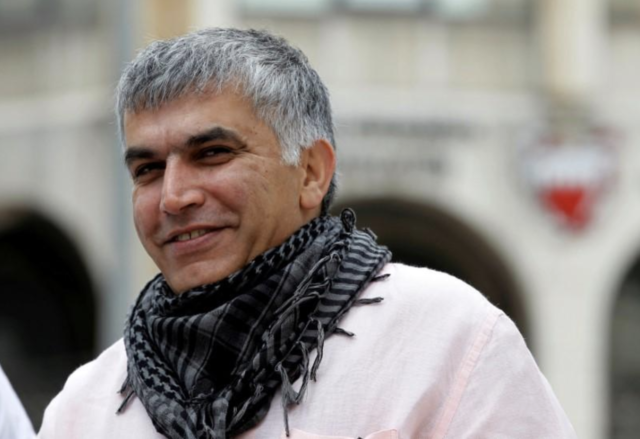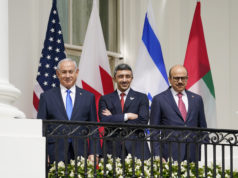A Bahraini court sentenced human rights activist Nabeel Rajab to five years in prison on Wednesday for a series of tweets he posted in 2015. Bahrain’s monarchy sees Rajab, who rose to prominence in the failed uprisings of 2011, as a threat to its legitimacy at a time when Iran has intensified its campaign to sow discontent throughout the region.
Rajab is already serving a two-year prison term for voicing his anti-government opinions in a television interview. Bahraini prosecutors argued that Rajab’s tweets, criticizing Saudi airstrikes in Yemen and exposing torture in a Bahraini prisons, were “insulting national institutions” and a neighboring country. Government representatives defended the trial saying that both sides had an opportunity to present their arguments and that “…the cases were overseen by numerous observers, including representatives from foreign embassies and NGOs”.
However, the international community and human rights organizations expressed disapproval of Rajab’s sentence. Hanan Salah of Human Rights Watch said Bahrain’s leaders “…are basically trying to clamp down on every kind of dissent. They don’t seem to tolerate any criticism.” A U.S. State Department spokeswoman voiced disappointment in the ruling saying, “We continue to have conversations with the government of Bahrain about our very serious concerns.” While Washington often worries about human rights abuses in the tiny Kingdom, Bahrain is an important U.S. ally in the region, providing a garrison to the Navy’s 5th Fleet.
Following the 2011 uprising and intervention by soldiers from neighboring Gulf allies, Bahrain’s ruling al-Khalifa family waged a successful campaign to imprison human rights activists. In doing so, Iranian leaders saw the tiny Gulf nation, with a Sunni monarchy and majority Shia population, as a target to further sow sectarianism.
Fear of Iranian meddling has prompted Bahrain to revoke the citizenship of a top Shia religious figures and to jail others. Bahrain also accuses Iran of being behind several bomb attacks on its security forces since 2011. In the face of Tehran’s attempts to inflame identity politics and breed discontent between Sunnis and Shiites through proxy battles, such as the war in Yemen, the al-Khalifas have sought to stabilize their regime and consolidate their power. While Iran might or might not have influenced Rajab, his actions are in line with Tehran’s goal to discredit the monarchy. As typical across the Middle East, when leaders feel threatened they are more likely to enact blanket oppression, even when not the dissent is not necessarily sectarian in nature.






